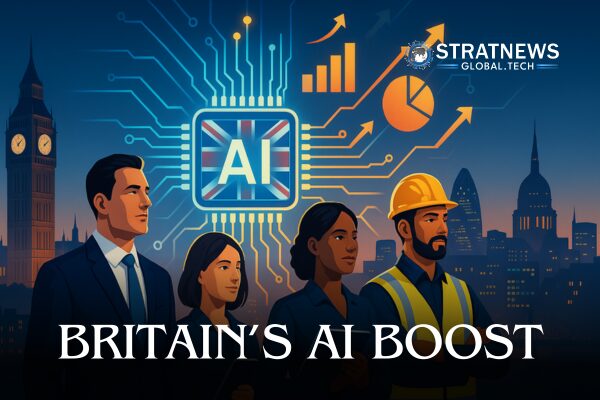From Two Weeks to Two Hours: How AI Could Transform Britain’s Economy
Artificial intelligence is rapidly reshaping how British firms work — and for some, the gains are dramatic. At Moore Kingston Smith (MKS), a mid-tier accountancy firm, what once took two weeks now takes just two hours thanks to AI-driven systems. The firm’s early success story has reignited hopes that the UK can finally tackle its long-standing productivity challenges.
AI Sparks Optimism in a Struggling Economy
For two decades, Britain has battled weak productivity growth, a problem that has weighed on pay and public finances alike. As Finance Minister Rachel Reeves prepares to unveil her new budget, AI is emerging as a rare bright spot. Economists say the UK’s service-heavy economy — which accounts for around 80% of total output — stands to gain the most from rapid AI adoption.
MKS, which employs about 1,500 people across the UK, is already putting Google’s Gemini 2.5 model to use. According to Becky Shields, the firm’s Head of Digital Transformation, AI is freeing staff from repetitive tasks and allowing them to focus on strategic work. “You can do a lot with a little,” she said, describing AI costs as “pennies in the pound” compared with other technologies.
Teams using AI more intensively reported profit margins eight percentage points higher than those using it less. Clients can now upload complete datasets rather than stacks of documents, allowing MKS to automate analysis and reduce administrative effort — a move that has also become a selling point for new business.
A Broader Push to Boost Productivity
Prime Minister Keir Starmer’s government hopes AI can deliver the productivity boost needed to drive growth and improve public services. But the challenge remains steep. Britain still faces high inflation, low business investment and a shrinking workforce. Economists warn that even with AI’s potential, the gains will take time.
Bank of England Governor Andrew Bailey recently reminded policymakers that it took decades for electricity to appear in productivity data. Experts such as Bart van Ark from the University of Manchester estimate AI could add only 0.1 to 0.2 percentage points to annual growth in the near term.
Still, economists agree the UK’s flexible regulation and strong services sector may allow faster adoption than other major European economies. Ratings agency Moody’s also suggested Britain could reap greater benefits from AI advances than many of its peers.
Risks and Opportunities in the AI Era
While AI could help Britain’s economy rebound, risks remain. Some analysts fear that productivity gains will be concentrated among large firms with deeper pockets, worsening regional inequalities. Others worry that regulators may struggle to keep up, particularly in heavily supervised sectors such as accounting and finance.
AI’s impact on jobs is also under close watch. A recent survey by the Chartered Institute of Personnel and Development found that 17% of private-sector employers expect to reduce headcount over the next year due to AI adoption. At MKS, graduate hiring has dipped temporarily as teams adapt to the new technology, though Shields expects recruitment to rebound once systems stabilise.
Despite these concerns, optimism is growing. If Britain can harness AI effectively across its vast services sector, it could finally reverse years of sluggish growth and reclaim its competitive edge in the global economy.
with inputs from Reuters


